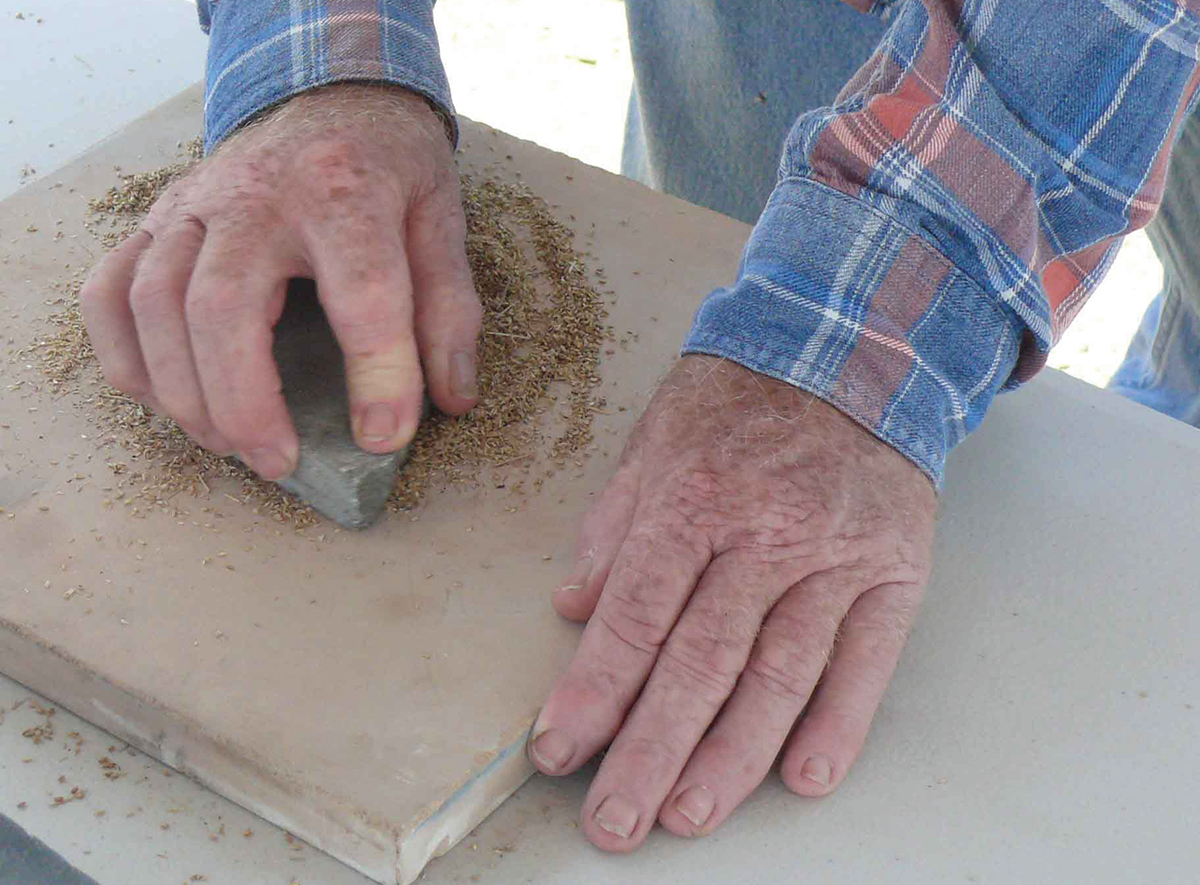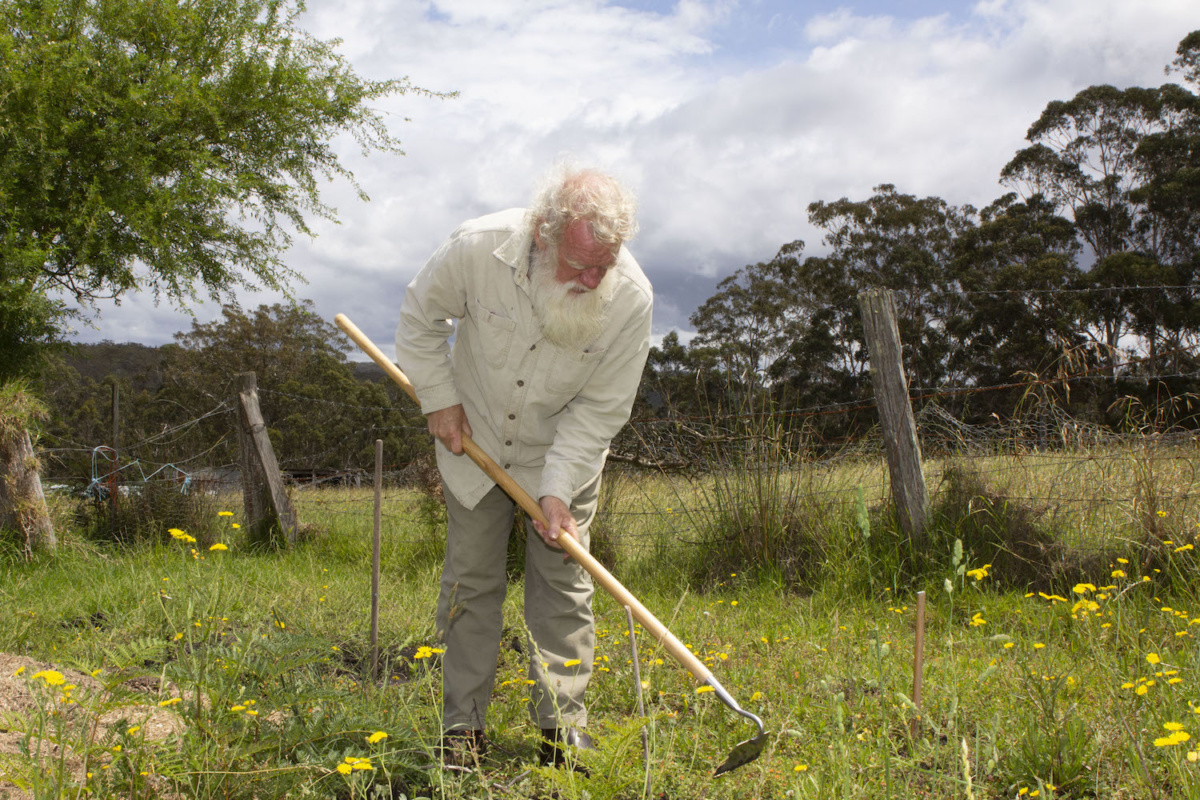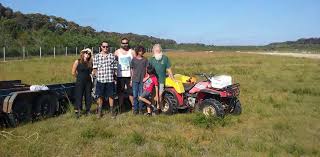The Big Furphy - Make it Big and Frequently
To paraphrase Joseph Goebbels, on his propaganda technique of “The Big Lie” :
“If you tell a Furphy big enough and keep repeating it, people will eventually come to believe it. The Furphy can be maintained only for such time as the Intellectual Elites can shield the people from the political and economic consequences of the Furphy. It thus becomes vitally important for the Intellectual Elites to use all of their powers to repress dissent, for the truth is the mortal enemy of the Furphy, and thus by extension, the truth is the greatest enemy of the Intellectual Elites.”
Dear Mr Stan Florek*, thank-you for your recent review, on the Australian Museum website, of Mr Pascoe’s Dark Emu.
Your review of Dark Emu is full of praise and it has given us an opportunity to highlight the lack of critical thinking that appears to be endemic in intellectual circles, when it comes to reviews of Mr Pascoe’s theory of Aboriginal ‘agriculture’.
We have considered your review below and added our comments in bold in response.
You write : “Dark Emu by Bruce Pascoe is an excellent book to inaugurate our [Australian Museum] Book Club’s proceedings, which commenced early this year,..Pascoe is an Aboriginal writer, researcher and educator, with ancestry combining Tasmanian and the Boonwurrung (Bunurong) clan of the Kulin Nation on the western side of Port Phillip Bay, Victoria. [“In the book [his Convincing Ground] and in interviews he [Pascoe] admitted that his indigenous ancestry was distant, and he was “more Cornish than Koori”- Ref 1].
“Dark Emu presents a view of Indigenous Australian history and culture different from conventional academic accounts and radically contrary to mainstream popular narrative. [You can say that!] Aboriginal and Torres Strait Islander people received insufficient and often distorted representation in cultural studies and, especially, Australian history. [This is a typical elitist put-down of the successes of Aboriginal culture as it completely ignores the evidence of the hundreds of books that have been published on Aborigines, their customs and societies, the life’s work of dozens of anthropologists that have studied Aboriginal societies in immense detail, the fact that knowledge of Aboriginal societies, art, dance, music and words are well known throughout Australia and the world].
“This resulted in large part from political context where indigenous Australians were dispossessed, marginalised and suffered many decades of political and civic exclusion, institutionalised and inherent in practice. To justify this the colonist constructed a narrative, depicting indigenous people as primitive nomadic tribes. [No need to construct a narrative - the evidence, accepted by all scholars and aborigines themselves is that they were nomadic, and were primitive (relative to the British settler society) and lived in tribes].
'“Civilising primitive land and people was framed as a noble endeavour, where ends justified means. [Yes, that was the way the world was in 1770-1778 - and the “Progressives” then, and as they still do now, believe in the progress of mankind and the evidence is that, on balance, mankind is better for it - Stan, don’t you consider yourself a “Progressive”? Don’t you support the Closing The Gap initiatives?] In this context, “nomad” was a judgemental term with negative connotations [No, it was a word with a specific, anthropological meaning and based on observable facts] – and people who are not settled or cultivate land (according to European model) do not have a title or claim to the land. [No, they did not have sovereignty, as was the accepted International Law at that time, but titles and claims were possible] So, the insulting term “nomad” helped to perpetuate the infamous myth of terra nullius - nobody's land. [Stan, you are displaying your intellectual elitism here - there are thousands of average Aussies who wear the badge, “Grey Nomad”, with pride - they even have their own website !
Yes, the political use of the term terra nullius has been raised to mythical status by the Aboriginal Political Elites - however, it is a term that was unknown by, and never used by, the British during their settlement of Australia. It was previously only used relatively recently in International Law situations to denote “a land with no sovereignty.”] “Hunter-gatherer” term, which circulated in both popular and academic spheres was more neutral, but it fed the same narrative about the “primitive dying race.” [We do not agree. Given that The Australian Museum is an institution of science, it should be self-evident to staff that the label, “Hunter gatherer”, is not a political term that was created to push a narrative - it has a specific, defined, academic meaning within the sciences, as one type of a classification of society. It is also a term ALL of mankind should be proud of as it represents the first footsteps in the development of complex human societies, a step ALL of our ancestors once took as skilful Hunter gatherers].
“Dark Emu is packed with quotes and references from original sources that collectively challenge the narrative of the Aboriginal people as nomadic hunters. [No they don’t - Mr Pascoe appears to rely on the fact that most readers don’t actually check his primary sources- as evidence, we checked one source (See our Post of June 29th), the researcher Harry Allen, who has three separate works cited in Dark Emu including, “The Bagundji of the Darling Basin: Cereal Gatherers in an Uncertain Environment” (1974). This paper concludes that the Aborigines DID NOT develop agriculture - the exact opposite of what Mr Pascoe claims]. This would be surprising to many ordinary readers [Yes, because it is not true and the average Australian knows it] and prodding the minds of mainstream academics. But Pascoe is not alone. There is a growing body of research and writing, showing on numerous levels, that the traditional portrait of primitive nomads can no longer be sustained. [ Really? Where ? Please provide your references - other academics completely refute his “theory” - Refs 2]
'“We are facing a tremendous shift in how the indigenous culture, society and economy in precolonial times is understood and how it would influence the future rights and dignity of dispossessed people. [This is the start of the Big Furphy technique - push this narrative at all opportunites, even to school kids - hoping that ultimately it will become the accepted narrative - But not so fast buster - We all can easily Fact Check nowadays and detect Fake News pretty quickly].
“Furthermore, this shift will influence the broad field of knowledge because there is not yet an adequate model in the anthropology tool box to account for the socio-economic manner of land use and the provisioning of resources, emerging from current research and re-examination of older theories. [ Stan, you need to rephrase this gobbledygook into plain english if you want to be understood].
‘We would need to consider propagation of plants beyond firestick farming, large storage of crops, reliance on grains in large parts of arid Australia, village-type settlements, dams and irrigation, large construction projects and substantial architecture, all combined with what looks like pretty sustainable (at least in comparative terms) economic and social systems. [No need for any further work Stan, what you describe here is our modern Australian agriculture and the economy that all of us Australians have built since 1788 - while you and your intellectual mates have been scribbling in your ivory towers, the rest of us have been working hard developing agricultural techniques, building grain silos, transport networks, flour mills, towns and cities, the Snowy Mountain scheme, irrigation systems, city sky-scrapers, universities, schools, hospitals, ports, banks, Medicare, social security, foreign aid departments and democracy. Did I forget anything?].
“While the Dark Emu presents a passionate polemic with distorted history, it also projects into the future. This new knowledge, that Pascoe outlines in his book, will enrich us all. It will compel us to respect indigenous cultures as our own. [Ah, the true authoritarian colours of the Elites are revealed - “you (the plebs) will be compelled to accept our ideology, no matter how counter-factual it is” - well no, we wont. You can teach your children this rubbish Stan, but our children will get a good proper education (and ultimately well paying jobs) based on common sense and Enlightenment values].
“Perhaps we’ll draw from this knowledge some ideas for the better use of land with its increasingly stressed resources. [Don’t hold your breath Stan, Australian farmers are way ahead of Mr Pascoe in the knowledge stakes. Do you or Mr Pascoe know anything about farming or landcare or land-use that qualifies you to make statements like this? - it is highly disrespectful of our farming pioneers and farmers of today to be lectured to by “play-farmers”, who would struggle to feed themselves, let alone the country.]
“And I hope we will see our indigenous brothers and sisters, with their long tradition and collective wisdom, participating equally in this knowledge-based quest for our common better future. [Nothing further to see Stan, all Aborigines have already agreed that, after 50,000 years, their lives as hunter-gatherers and their strict culture was too difficult and they have all voted with their feet - 70% have moved into towns and cities and successfully joined mainstream Australian society as Australians. The other 30% have decided to follow a warped half-in/half-out model of traditional/modern society in remote communities, which is not my idea of a life but hey, its a free, beautiful country, Stan where we are all able to make our own choices and thank God we don’t have to conform to every tin-pot ideology that intellectual elites, like Mr Pascoe, throw at us.]
So, besides my few quibbles Stan, your article was very good.
* Dr Stan Florek, Collection Officer, Pacific, Australian Museum Sydney, PhD in Archaeology: University of Sydney, Diploma in Education: Charles Sturt University,Diploma in Fine Arts: Northern Sydney Institute of TAFE,MA (Hons) in Archaeology: Wroclaw University, Poland
References
Richard Guilliatt, “Turning history on its head”, The Weekend Australian Magazine May 25, 2019.
Ian Gilligan, Josephine Flood, Prof Richard Broome, Jared Diamond, Tim Flannery, (See our various posts for details).








